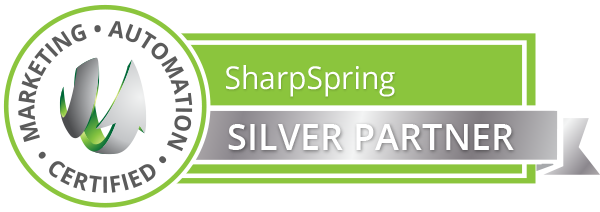
In the last century, the world saw a massive revolution of innovation.
Beyond modern marvels such as digital advancements and the evolution of the smartphone, artificial intelligence is gradually changing society and how people navigate their lives. Machine learning is gradually being integrated into nearly every aspect of life.
It’s already used in machine translation, email spam filters, ATM check depositing and facial recognition – and that’s just what an average person uses day-to-day.
Predictive intelligence is making businesses more efficient, effective and successful. B2B companies deploying predictive intelligence for marketing activities are closer to the holy grail of understanding each individual customer – and personalizing all content to their needs and interests.
Technology not far from artificial intelligence is making a significant impact on the marketing industry. In fact, 86% of marketing executives have already indicated they have seen a positive return on investment in marketing technology and predictive analytics. The future of B2B marketing will focus on predictive analysis and intelligence, and have a major impact on lead scoring and content targeting.
The Transformation of Lead Scoring
Lead scoring is essentially a points system used to determine where your prospects are in the buying journey. The idea is to look at customers uniquely for a better understanding of what they looking for, what you can provide them with – and if they’re likely to make a purchase.
Manually scoring leads, with this helpful guide, can be an excellent introduction to the strategy of fully comprehending customers. Assigning this responsibility to your B2B marketing team brings consistency, reliability and focus to a personalization approach.
Beyond manual lead scoring lies predictive lead scoring. This is a proactive way to accelerate the sales process by determining which customers are ideal based on past behaviors and purchasing history.
This takes into account other technologies, such as CRM or marketing automation, and demographic information to predict whom sales and marketing should be nurturing closely. Still done semi-manually, this method uses the insight from traditional lead scoring and blends it with modern ways of working.
In terms of the future of B2B marketing, predictive lead scoring using predictive intelligence is yet one step further. This is even more accurate than basic lead scoring, because of its correlation between patterns discovered in both a company’s first-party data and general third-party trends.
It has also become the standard for most companies, especially technology-based businesses. A 2014 study revealed 90% of users agree predictive lead scoring provides more value than traditional approaches. The comprehensive nature of looking at customers holistically and integrating that insight into how you communicate with them can fast track your marketing efforts.
Given that artificial intelligence can predict the status of hundreds of prospects in a matter of minutes, marketers have everything to gain by using this technology.
A recent Gartner study concluded that predictive intelligence is a must-have for B2B marketing leaders. Just as marketing automation is being adopted widely within the marketing industry, predictive lead scoring is likely to follow.
The immediacy of reaching customers, understanding their needs and effectively determining their value to your company has created a necessary place for predictive intelligence in lead scoring.
The Power of Personalized Content Targeting
Predictive intelligence, an important component of predictive analytics, is also critical in learning which pieces of content to target to which customers. After predictive lead scoring reveals where each customer is and might be headed in the buying journey, you can glean insights from predictive analytics for establishing the tone, material and style of content each prospect will respond to most fervently.
An algorithm that determines the factors influencing a prospect can also pull the appropriate content. Just as you would send additional white papers to a manually-scored lead with interest in more in-depth material, this algorithm identifies the many customers to whom whitepapers would apply.
Sending the right content is just as important as creating it in the first place. Predictive analytics also leads to informed idea generation and content development.
Using predictive analytics in your content marketing takes careful consideration, but can be done successfully if you know the right data points to use and what to integrate into your existing strategy.
Seeing what content receives the most engagement and is most worthwhile to your prospects helps you tailor future content to those interests. Even with predictive analytics on your side to help you gain incredibly beneficial insights, it still takes a human to use the insight wisely and proactively.
Marketing professionals who work based on data, emotions and customer connections are the whole package in targeting content most effectively.
A.I. and the Future of B2B Marketing
Although artificial intelligence is not quite at the point of thinking, processing and completing tasks at the speed of a human brain, developments in the science of machine learning are getting closer to a complete takeover of this technology.
The existing uses of artificial intelligence within marketing is a good indication that the future of B2B marketing is bright – and that lead scoring and content targeting will be perfected as the technology matures.
With an already efficient system of analyzing data from thousands of sources to make sense of a single customer, predictive intelligence is making it possible for even small B2B companies to grow at rapid rates and expand their potential faster than traditional methods.
![]()


